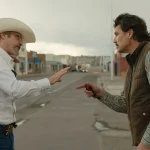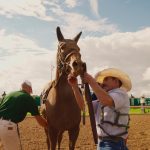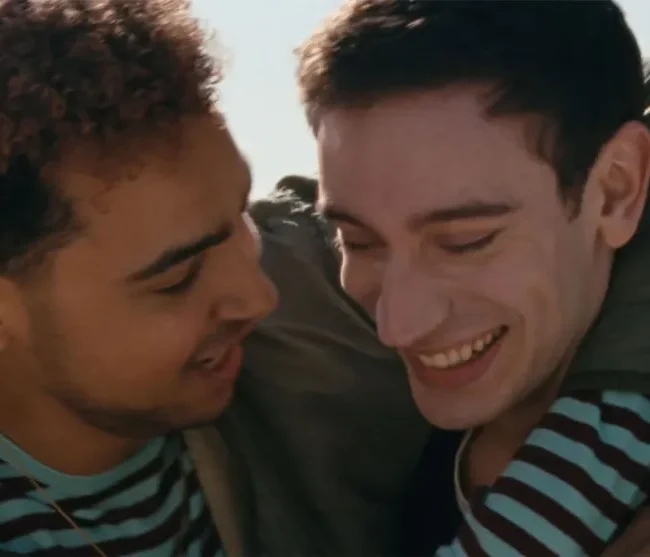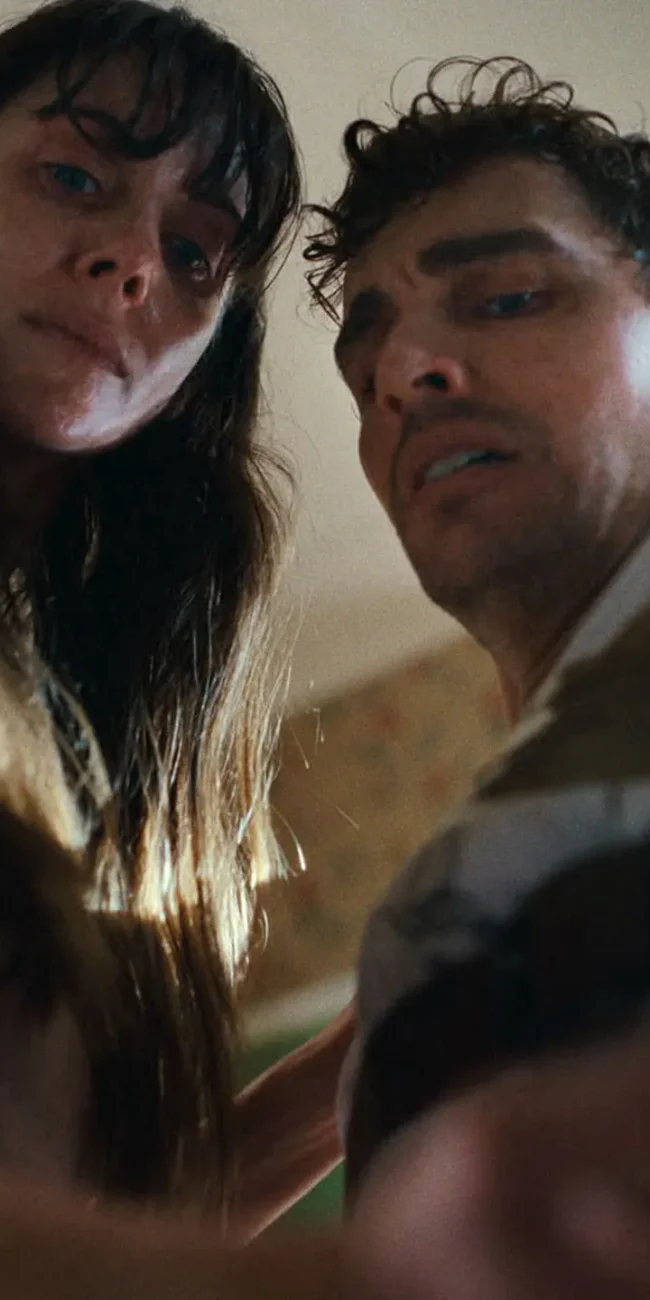BRAVO, BURKINA!
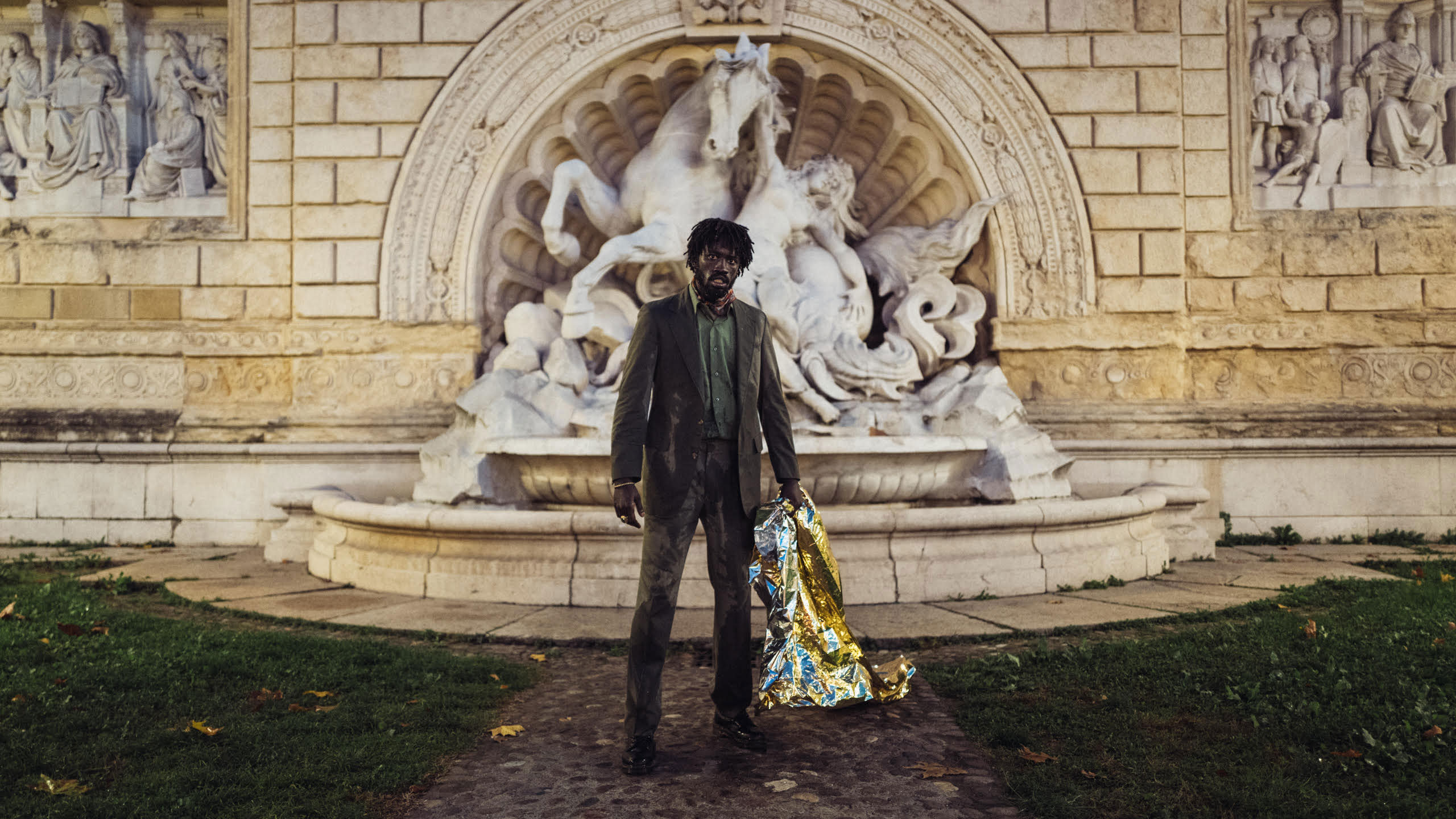
(The 2023 Sundance Film Festival took place January 19-29 in and around Park City, UT and virtually. As always, Hammer to Nail has you covered with tons of movie reviews like M.J. O’Toole’s review of the movie Bravo, Burkina!. Seen it? Join the conversation with HtN on our Letterboxd Page.)
“How far must we go? How many masks must we wear? Before we see ourselves for what we are.” These opening lines in fashion designer and director Walé Oyéjidé’s feature-length debut Bravo, Burkina! pose a question in regard to the trials and triumphs that refugees and immigrants face in their own journeys abroad. Whether they are trying to make a new home or make enough to bring back to their home countries, there are numerous struggles that are beyond the average human comprehension. However, this does not play the way a “ripped from the headlines” story would. It is a meditation on migrants trying to find their place in the world while reconciling with the past and the lives they leave behind. For a movie that’s only 64 minutes long, Oyéjidé packs a lot of depth and meaning that transcends the headlines in a way that makes us see the characters for their humanity and complexities as much as their circumstances.
At the beginning of the film, we meet a young boy Aimé (Mousty Mbaye) in a Burkina Faso village who spends his days assisting his shepherd father and experiencing the little joys and curiosities his youth offers him. The return of one of the villagers, who lived abroad for a number of years, bearing gifts causes a shift in young Aimé’s curiosity in terms of what life lies away from home. While searching for his father’s cattle, he comes across a river and a mysterious, masked shaman-like figure who warns him that if he crosses it, “You will gain everything. But you will also lose everything.” A second later he wakes up on the streets of an unnamed Italian village, but this time as a young man (Alain Tiendrebeogo). It is unknown how much time has passed, or if time is even fluid in this universe. Unlike Jonas Carpignano’s Mediterranea, which tackles a very similar theme, there is no verité-like approach to this experience. Oyéjidé captures it through a more philosophical, time-bending lens that convinces you to not understand the experience, but rather just feel it.
Despite his poor living situation, Aimé is always seen in debonair, vibrant fashion, courtesy of Oyéjidé’s costume design under his Ikiré Jones fashion label. His refusal to acknowledge his fellow refugees, who look out into the world behind the fence of a processing facility, hints at a sort of denial of both his migrant and societal status. Moments such as these emphasize the status elevation and equality migrants seek from the world around them. The majority of dialogue penned by Oyéjidé consists of poetic statements that often carry fiery tones, such as the asylum seekers repeatedly declaring “Our dreams do not belong in a cage!” When Aimé starts a romance with fellow Burkinabe Asma (Aissata Deme), whose immigration application is denied, she has him view life and those with similar circumstances as theirs in a more empathetic and appreciative way. One particularly beautiful moment of their limited love story was filmed in an Italian castle where light from the stained glass floods their faces, thanks to the sun-filled cinematography by Jake Saner (Good Girl Jane). As Aimé reaches new levels of success in the antique shop he works in and his dreams are more within reach, he is still haunted by the family he left behind in Burkina Faso who are still waiting for his return, and the same figure he encountered in his youth. As regret and despair sink in, Aimé stumbles on a way he may go back home and regain all that is lost, which may be the same way he left in the first place.
Using an incredibly timely subject, Oyéjidé employs a poetic, evocative approach to both storytelling and invoking empathy for almost all characters. While it may try too hard at times to be profound, Bravo, Burkina! is a deep, dreamlike experience that takes us on a journey of both distance and time. Ali Helnwein’s euphonious cello-filled score also helps evoke its melancholic tones with grace. What’s unique about this kind of tale is that the stakes aren’t raised as much in terms of racial tensions or international policy, but by the Malickian dilemma of being trapped between two worlds and the complicated feelings that arise from it. But it is also a more tranquil retreat from the harsh realities we would see on the news. It shows that the connections we have to where we come from may be stronger than where we may end up.
– M.J. O’Toole (@mj_otoole93)
2023 Sundance Film Festival; Walé Oyéjidé; Bravo, Burkina! movie review

